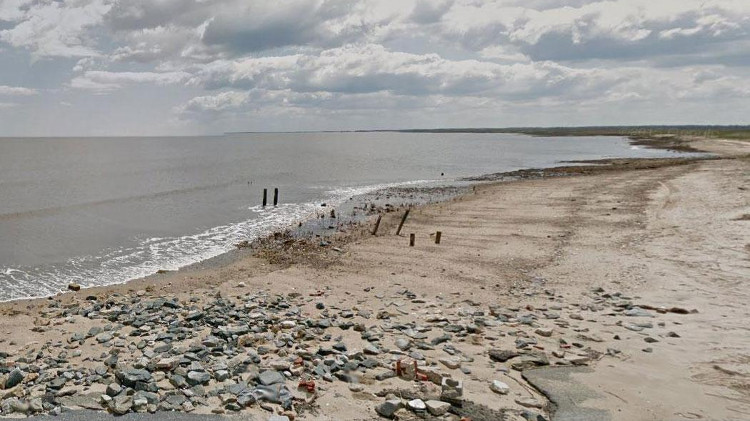Climate change can make beaches more salty
According to a new study, climate change will make the beach more salty, causing crabs and other marine organisms to be affected.
The amount of sand from a Delaware Bay beach tells us more about the extent to which the increase in temperature and evaporation along the coast. This is challenging the long-standing assumptions of scientists about the causes of seawater salinity fluctuating constantly in coastal areas, where there is a rich network of plants and marine life.
This finding is related to the migration and survival of some animals such as mussels and crabs while global warming causes high temperatures.

The minerals in some areas of Slaughter's coast in Delaware have four times the salt content of seawater.
A first major study of the effect of evaporation on ocean current and salinity or salt content in seawater - the beach in the middle of the sea with high tide and low tide - was successful. published in Scientific Report.
This study was conducted by the New Jersey Institute of Technology (NJIT). Two environmental engineers and one coastal geologist led the research. They found minerals in several areas at Slaughter's coast in Delaware that were four times as high in salt as seawater. This finding surprised the scientists.
The researchers tested 400 different sediment samples in successive times of a complete tidal cycle, from morning to night. This test lasts for 7 consecutive days. They found that seawater with a salt content of 25 grams per liter (g / L). At the same time, they found that the average salinity in areas with high tides was 60 g / L and some places even reached 100 g / L.
Xiaolong Geng, associate professor at NJIT, and the lead author of the findings, said: "This significant increase may be a consequence of evaporation , because there is no other mechanism to increase. The amount of salt in the calm waters - the amount of water in the middle of the mineral deposits, Evaporation is an important cause of the control of groundwater flow and the salinity of seawater . Salinity changes, even if the salt content in the sea is too high or too low, they will migrate. "

This change may also affect freshwater in coastal areas.
Dr. Michel Boufadel, who also participated in the study, said the change could also affect freshwater in coastal areas. "Previous studies have identified seawater as the main cause for salinity in groundwater systems in coastal areas, thereby concluding that the penetration of seawater always increases the salinity of calm waters. in the process of mixing seawater and groundwater ".
"Based on what we know, we think this finding will change the way coastal areas are managed , " said Dr. Michel.
- What if the sea is no longer salty?
- Vietnam may lose some beaches because of sea level rise
- Why do salty snacks make people eat as much as they crave?
- People make climate change
- This is how Dubai copes with climate change
- America: Climate change will make corn prices unstable
- What is Climate Change?
- Marching for climate change around the world
- The terrifying change of the Earth due to climate change
- SimCLIM helps build climate change scenarios
- Climate change is happening faster than expected
- 4 shocking findings on climate change
 Is the magnetic North Pole shift dangerous to humanity?
Is the magnetic North Pole shift dangerous to humanity? Washington legalizes the recycling of human bodies into fertilizer
Washington legalizes the recycling of human bodies into fertilizer Lightning stone - the mysterious guest
Lightning stone - the mysterious guest Stunned by the mysterious sunset, strange appearance
Stunned by the mysterious sunset, strange appearance Electrode technology helps produce hydrogen fuel from seawater
Electrode technology helps produce hydrogen fuel from seawater  Huge 'treasure' in the ocean: It took more than 60 years that humans still have not recovered!
Huge 'treasure' in the ocean: It took more than 60 years that humans still have not recovered!  Climate change changes the pH of the ocean, returning to what it was 14 million years ago
Climate change changes the pH of the ocean, returning to what it was 14 million years ago  Inventing a way to create hydrogen fuel from seawater
Inventing a way to create hydrogen fuel from seawater  The Israeli group considered building a seawater refinery in Vietnam
The Israeli group considered building a seawater refinery in Vietnam  Why can't sea water drink?
Why can't sea water drink? 